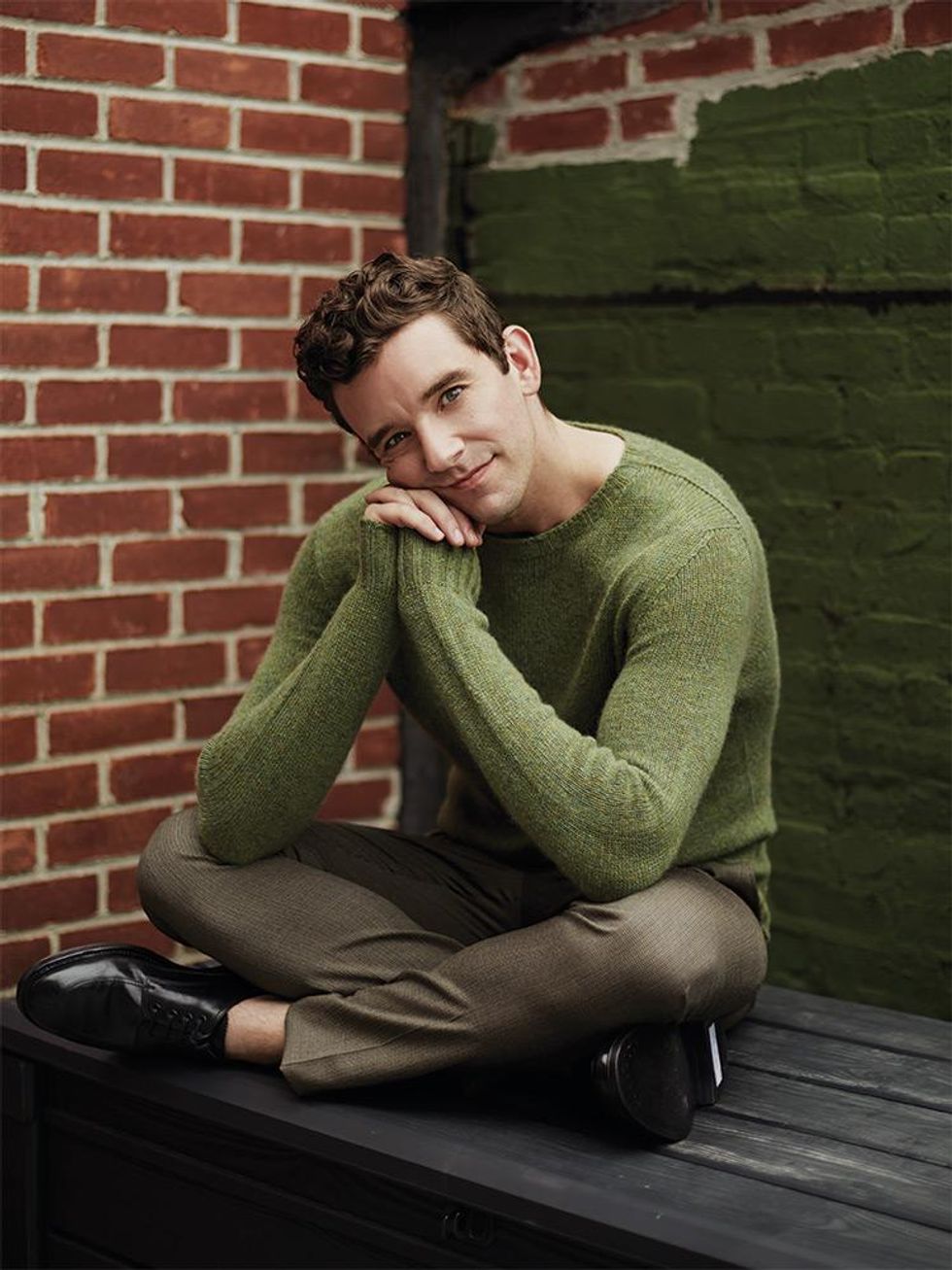"It wasn't until I did Barbra Streisand that they realized I could take on Harvey Fierstein," Michael Urie says with a laugh. The 37-year-old actor, who made his name as harried assistant Marc on TV's Ugly Betty, is recalling his thrilling turn in 2013's Buyer and Cellar, a one-man show about a Streisand superfan who works in the underground mall that stores her wardrobe and miscellany. That dynamic performance may well be what led him to his starring role in the new revival of 1981's Torch Song Trilogy, the watershed play written by (and originally starring) Fierstein about a lovelorn drag queen who goes searching for romance and family--and finds it.
"It's so rare to have a gay character at the center of a play who's funny, heartbroken, strong, and the one with the problem," Urie says. "But Arnold's problem isn't that he's gay--it's that he's in love. Like any other person. There's a purity to it."
Related | 15 Musical & Dance Performances to Watch This Fall
Urie isn't just headlining the production--he's enabled its resurrection. When it opens October 19 at Manhattan's Second Stage, it will mark the first time Torch Song--its revised name--has been remounted by a major New York theater in 35 years. "We had been asked many times," says Fierstein, "and I kept holding off because we never found the right person to play the lead. And then we did: Michael Urie."
Fierstein wasn't threatened by the idea of someone else tackling the role he originated, but he was a bit anxious, knowing what it requires. With equal parts hilarity and pathos, the story follows lead character Arnold from his frustrated young affair with a bisexual man to his experience as a mature single father. "Michael has the drama," Fierstein says. "He has the comedy. He has the open heart to let an audience watch what he has to go through. It's a very funny play, but a lot of really horrible things happen to Arnold. So you need an actor who has an understanding of how to keep the show and the character buoyant."
Directed by Moises Kaufman, the former three-act play has been trimmed down to two acts and renamed Torch Song to avoid scaring off today's easily distracted crowds with the word trilogy, Fierstein says, not entirely in jest. But it will not be overhauled. "This play was written by someone who I'm not anymore," says Fierstein, "so I can edit for clarity and I can edit for time. But I'd never rewrite."
For his part, Urie found the material to be the opposite of a period piece. He originally discovered the script as a high school speech and drama student in Texas. "It feels like it was written tomorrow," he says. "There's a guy who just wants to be a husband and a father: What does it mean to have a legitimate romance, and is it possible? I find that so many people are lovesick and yearning, and waiting for this discussion. We're also post-marriage equality, and we're sort of like, 'All right, the ideal has been achieved.' But what does romance mean in the context of that ideal? Even married partners are thinking about that concept."
Fierstein agrees that the play won't seem like a Reagan-era relic. "It's totally different, and yet it's no different," he says. "We all grow up in the same homes. Some of us grow up with parents with wonderful examples of marriages. Some of us grow up with a terrible home life. We carry those pasts into our love lives, not politics or culture. Politics and culture just shape the possibility of what you can do with it all."

Suit & Shirt: Perry Ellis
Personally, Urie can't relate much to Arnold's relationship woes. The actor lives in Midtown with his boyfriend of eight and a half years. They're committed, but not married, and a wedding was never their goal. "We're happy [marriage equality] exists," he says, "but we never really imagined it until it was a possibility, so we had no plan--no dream about marriage. Even now, anytime we talk about it, it becomes about other people [and their expectations]. And we wouldn't do it for anybody else--we'd do it for ourselves."
As Urie talks inside a diner near Columbus Circle, a TV is tuned in to a news segment about a seemingly interminable meeting between Donald Trump and Vladimir Putin. By chance, Urie is starring in an off-Broadway Russian satire called The Government Inspector. "It's a silly election comedy about this idiot who everyone thinks is the government inspector," he says, "but he ends up simply being an idiot. It has a totally new meaning now, because we're dealing with Russian politics and idiot politics."
The actor has had consistent work onstage--in both comedies and dramas--but the TV gigs have also kept rolling in since Ugly Betty. He has a recurring role on TV Land's Younger, and last year, he had another on The Good Wife. But he still prefers the theater. "I've done more of it," he says. "but I also think my being better onstage reflects the plays I've been able to do. I don't always get the juicy parts on TV."
But he refuses to blame that on the fact that he's played queer characters and been out publicly for seven years. "I've had reputable people say, 'You need to stop playing so many gay roles,'" he says. "Why would they say that? Playing gay people has given me a career, and I wouldn't be here talking about the several projects I have going on if I hadn't been out."
Adds Urie, "Maybe romantic leads like Romeo or Stanley Kowalski don't come my way. But if I were straight, or closeted, then I probably wouldn't get all these great gay parts. And I have no intention of stopping." Rest assured: Torch Song won't be his swan song.
Photography: Daniel Seung Lee
Styling: Michael Cook
Groomer: Melissa Dezarate at Art Department
























































































